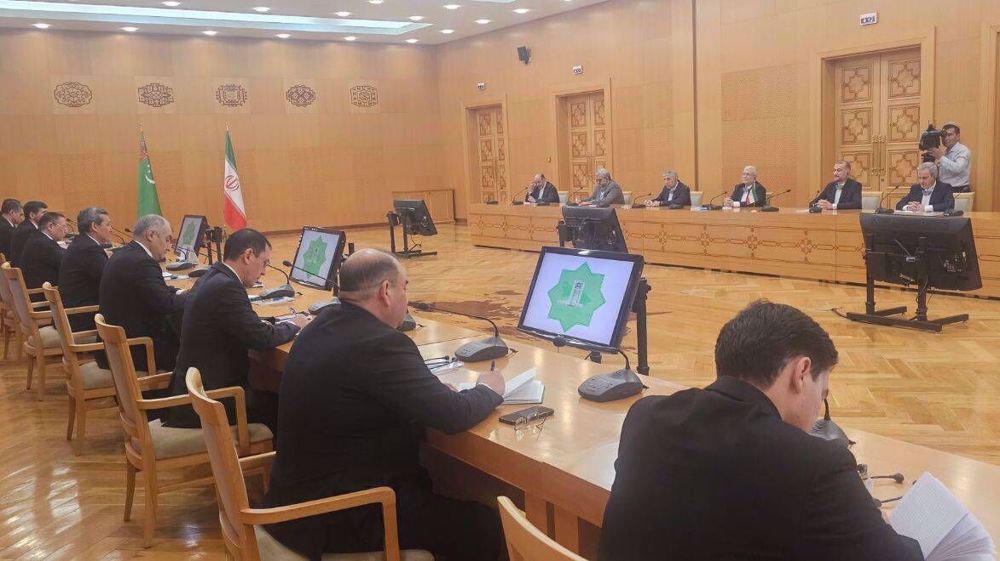Boeing's Iran deal in limbo after Trump ban
The fate of a landmark deal for Boeing to sell 80 passenger aircraft to Iran has been thrown into doubt following President Donald Trump’s executive order barring travel by Iranians to the US.
Boeing announced a $16.6 billion agreement with the national carrier Iran Air in December, saying the orders were on course to support nearly 100,000 new jobs in the United States.
The deal, however, has already run into opposition in the Republican-run Congress and Trump's travel ban further makes it impossible for pilots, cabin staff and maintenance crews to enter the US for training.
And given the kind of people who have gathered around Trump - from 13 pro-Israeli politicians in his administration to anti-Iran aides - the agreement might be headed for his chopping block.
"We think the president's travel ban could have negative implications for orders from Iran and Iraq," James Corridore, an aerospace analyst at CFRA Research, has been quoted as saying.
Boeing issued a statement Monday in response to media inquiries.
“We’re continuing to assess any impact the executive order might have and are closely monitoring congressional, administration and judicial actions,” a spokesman said.
Deputy Transport Minister Asghar Fakhrieh-Kashan has warned that Iran would seek return of "prepayments with interest" if the Boeing deal were thwarted by Trump’s administration.
The aircraft have to be delivered over 10 years, beginning in 2018. The agreement includes orders for 50 narrow-body 737 passenger jets and 30 wide-body 777 aircraft. Boeing has said the deal was reached under the conditions of a US government license issued in September.

While the value of the contract has been put at $16.6 billion, Fakhrieh Kashan has said it may be worth only half that given the type of orders and the specifications Iran has chosen.
Iran, a country of 80 million people, is a critical market for Boeing which is in the midst of cost-cutting in its commercial aircraft division and facing tough competition from Airbus.
Airbus has a deal with Iran Air for the delivery of 98 aircraft, including 46 single-aisle airplanes and 52 wide-body jets, worth about $8.4 billion. It rushed to deliver the first airplane to Iran in January, making the deal a fait accompli.
According to vice president with industry consulting firm Avitas Adam Pilarski, Airbus was smart. “They immediately delivered a plane, so it’s hard to step back,” he was quoted as saying Tuesday.
The first of the airliners, a brand new 189-seater of the A321 type, flew into Tehran last month. On Tuesday, Iran’s Transport Minister Abbas Akhundi said two more Airbus aircraft will join the Iranian fleet in the next four weeks.

On Monday, French Foreign Minister Jean-Marc Ayrault traveled to Tehran with a trade delegation to assure Iran of Europe's support for better relations. He said a deal between ATR with Iran Air for the sale of at least 20 turboprop aircraft was "practically sealed."
As for Boeing, Pilarski said the travel ban could be bypassed and waivers granted if the Trump administration chose to let the group sell airplanes to Iran but he saw it unlikely.
“During the election campaign, Trump and a number of people close to him said they hate the Iran nuclear deal,” said Pilarksi. “A number of his military advisers have been strongly anti-Iran.”
Richard Aboulafia, aviation analyst with the Teal Group, was even more alarmist, saying he believed Trump might reinstate the sanctions the US agreed to lift under a nuclear deal with Iran in January 2016.
“My assumption has been they are going to re-impose sanctions, so it’s probably dead anyway,” he said.
Two Palestinians killed in West Bank amid drastic rise in settler attacks
SCO chief condemns Israel’s terrorist attack on Iran’s Syria consulate
VIDEO | Press TV's news headlines
April 15: ‘Axis of Resistance’ operations against Israeli occupation
Yale students threaten hunger strike over university connection to Gaza war
Iran to UN: Anti-Israeli retaliation could have been wider in scope
VIDEO | Punishment promise fulfilled
Iran to respond to any fresh Israeli mistake ‘within seconds’: Deputy FM










 This makes it easy to access the Press TV website
This makes it easy to access the Press TV website